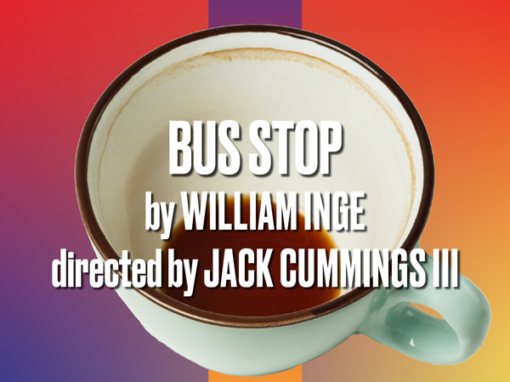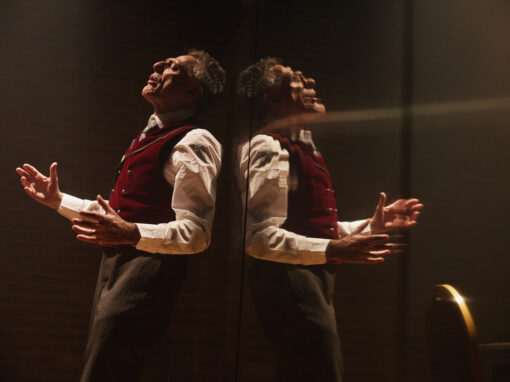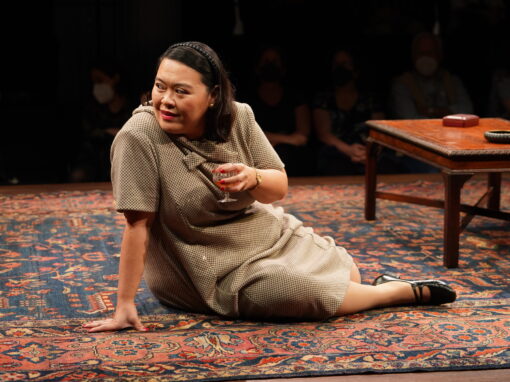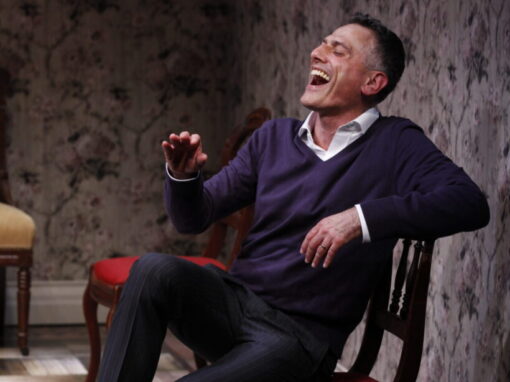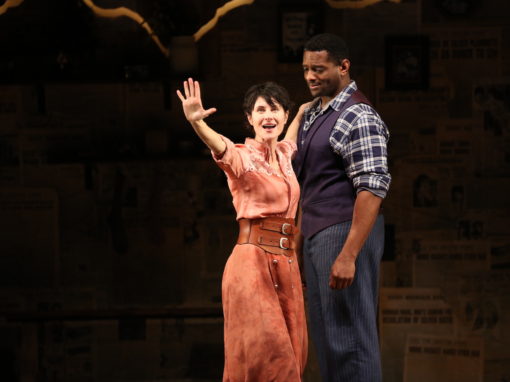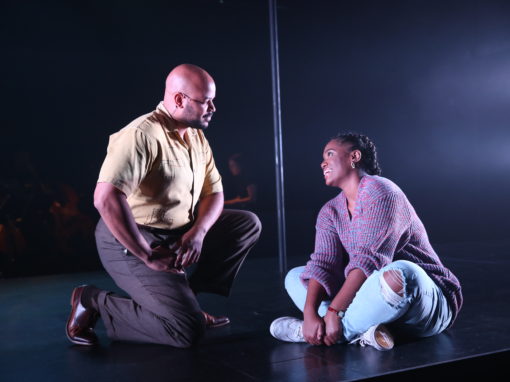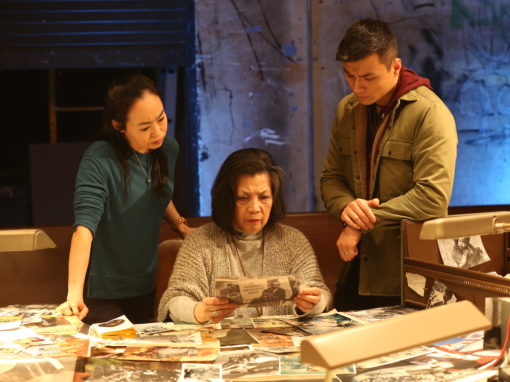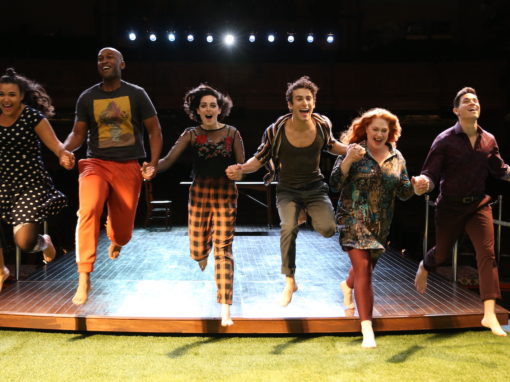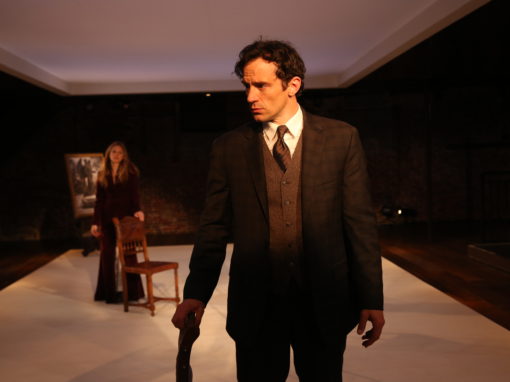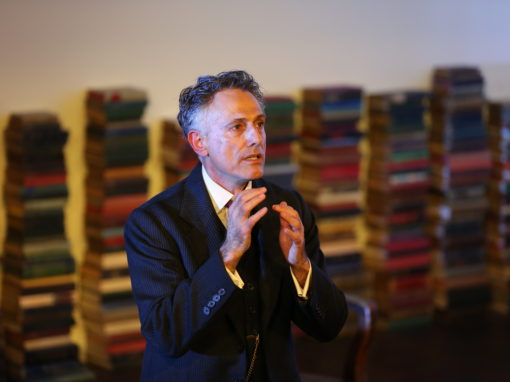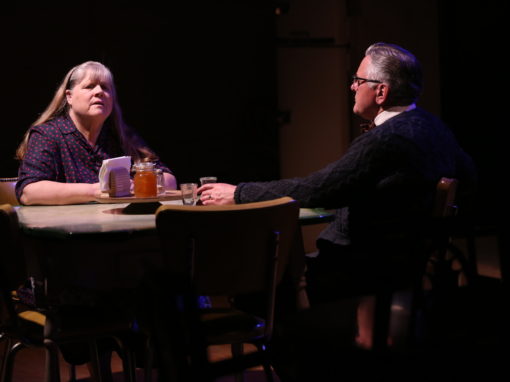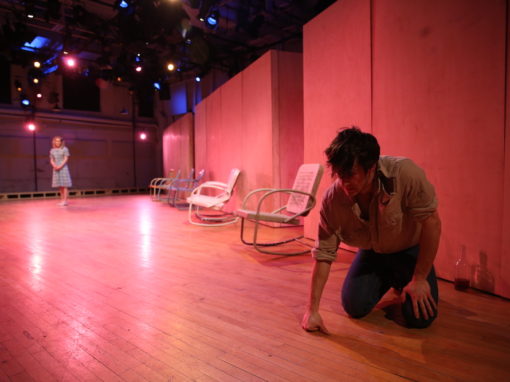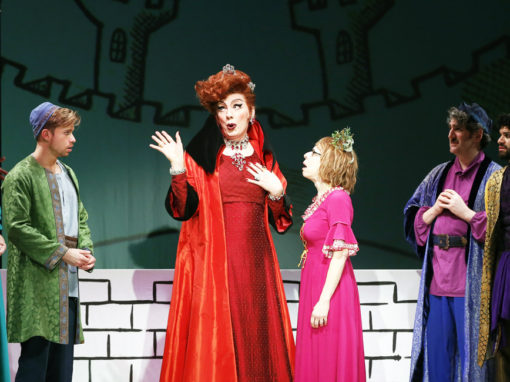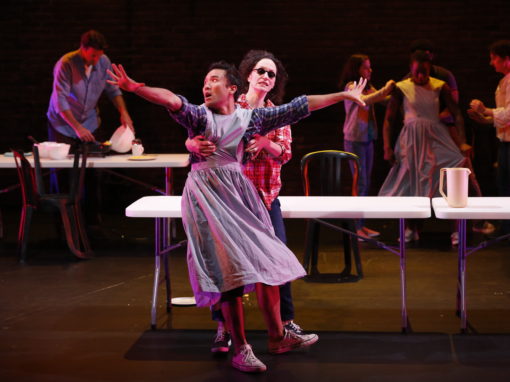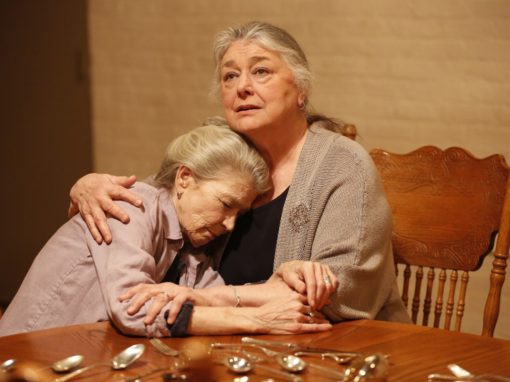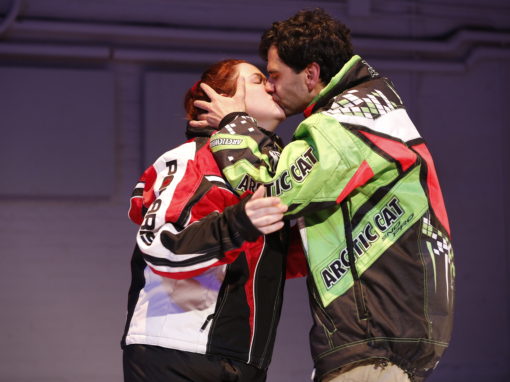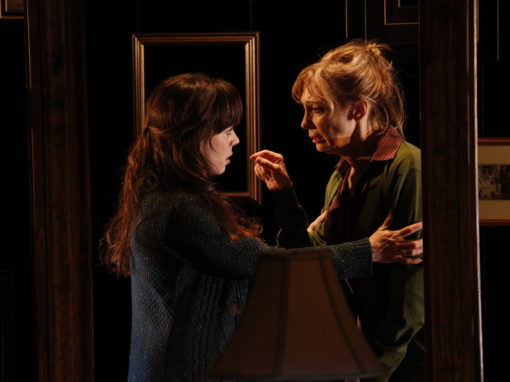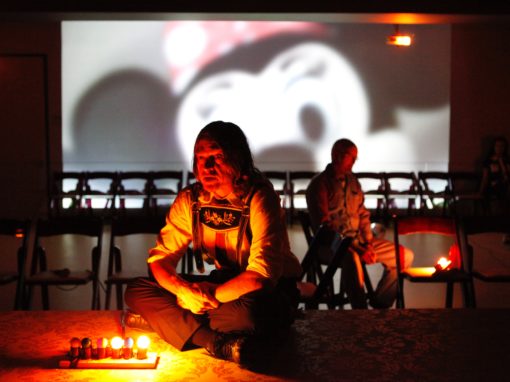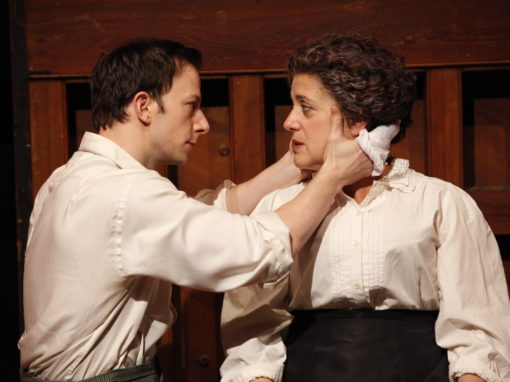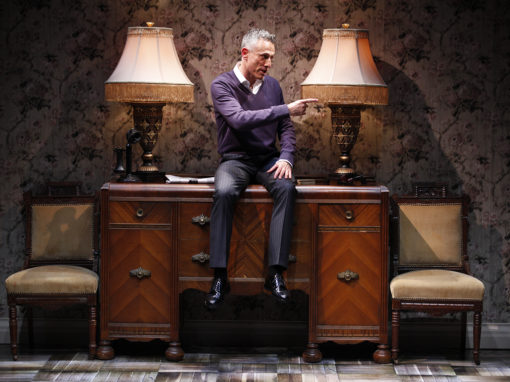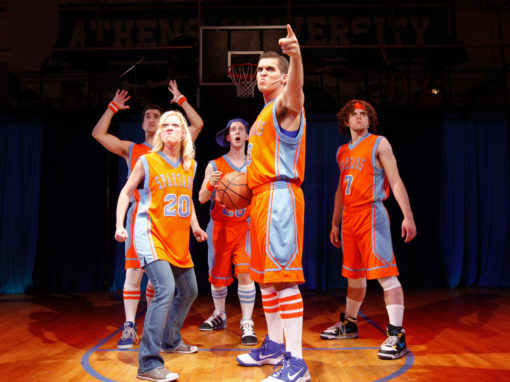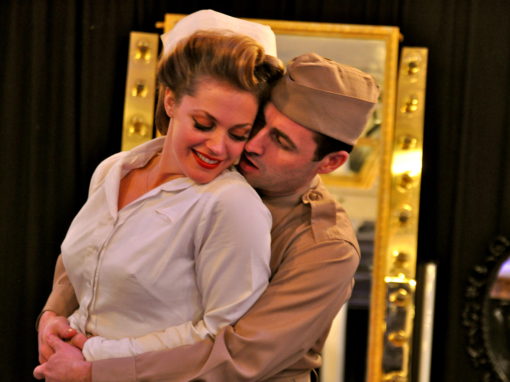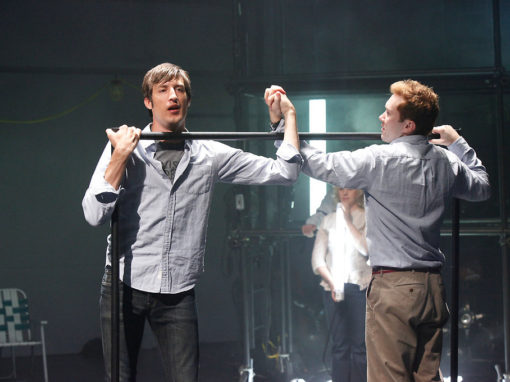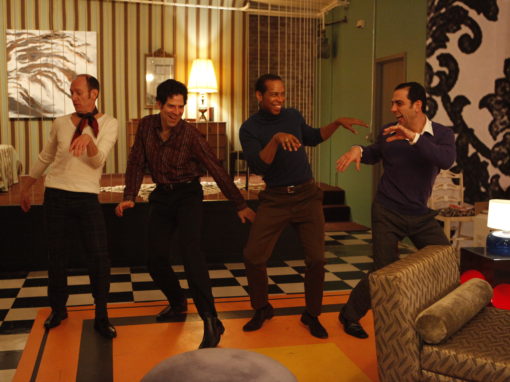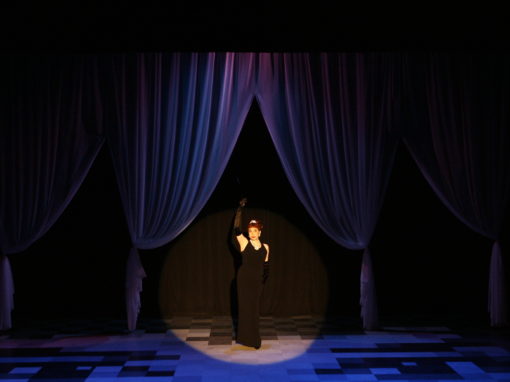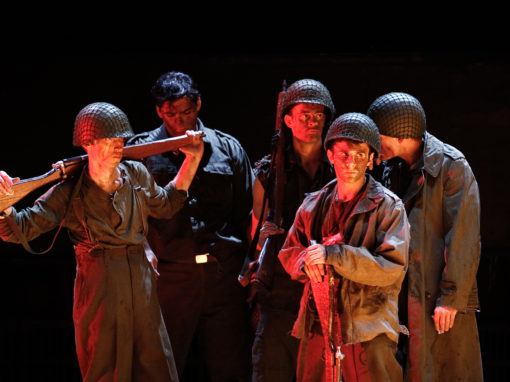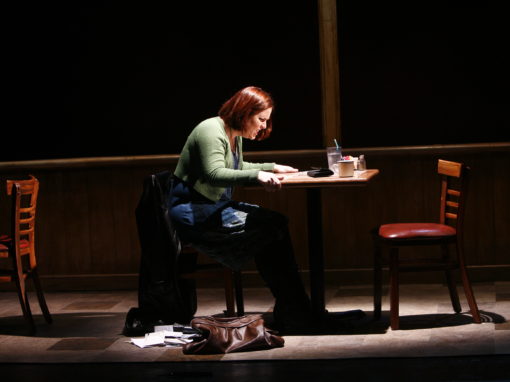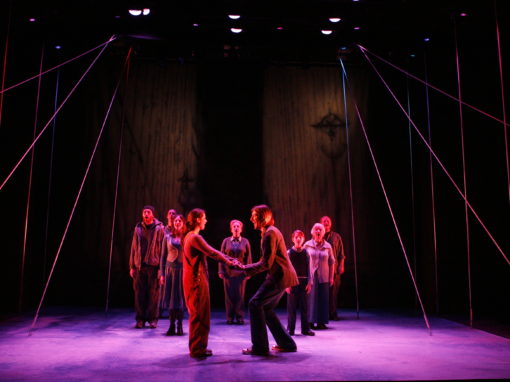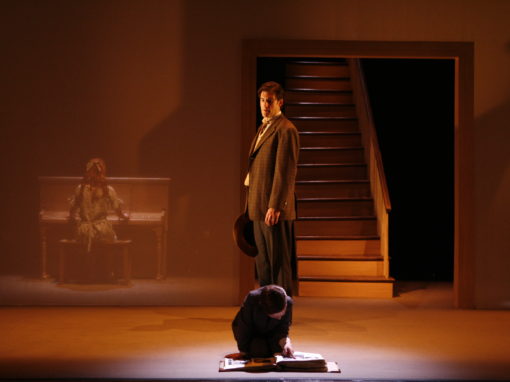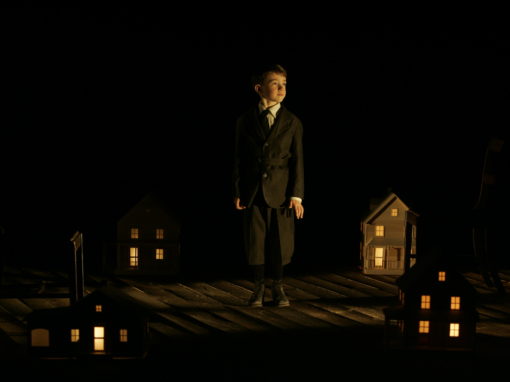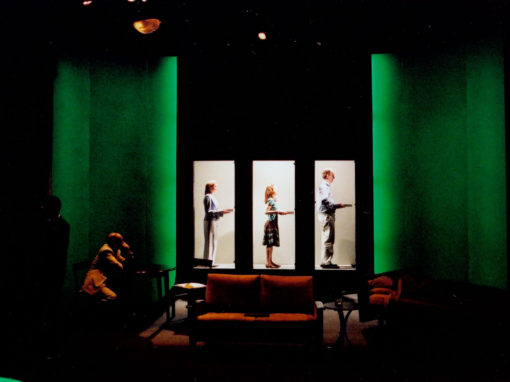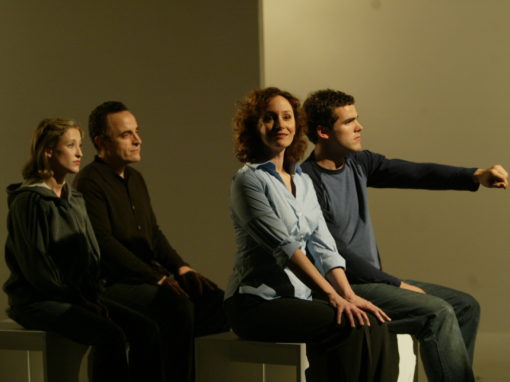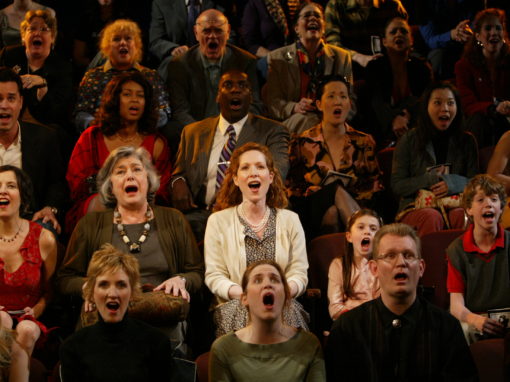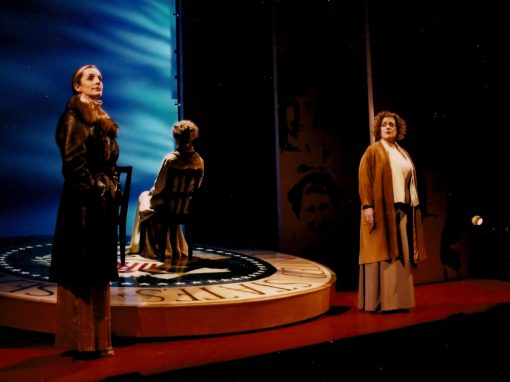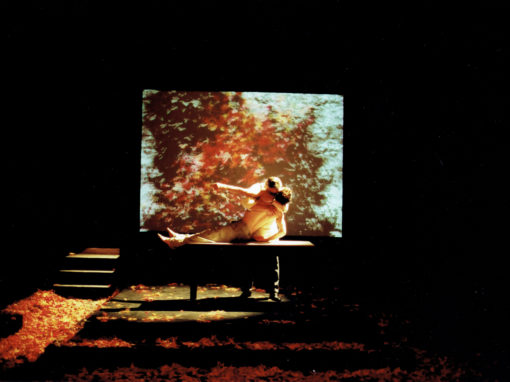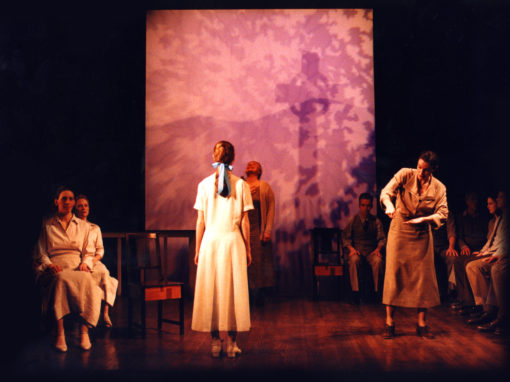Kvetch and Tell // by Lee Tannen
Writer Lee Tannen’s story for THE AUDIENCE hits close to home.
Winter, 2003
The Connelly Theatre
East 4th Street, NYC
My partner Tom Wells and I are at a performance of Requiem For William, directed by Jack Cummings III (never understood the “III” but we’ll discuss that later), which consisted of seven one-act plays by William Inge. Each play ended with an original song that was sung by the actor who had the smallest role. Right from the jump I thought, “Now, there’s an interesting conceit.” We knew only one person in the company of 26 terrific actors, Diane Sutherland. It was really a transporting (pun intended) evening of theatre. We were very impressed.
I remember seeing Jack in the back of the theatre, and after the curtain came down, we wanted to go and introduce ourselves and congratulate him on a job well done. But somehow, I was a bit intimidated by his presence. For those of you who may be reading this essay and who know me, intimidation is not in my wheelhouse. Although I do admit that for me meeting somebody with real creative talent does get me a little tongue-tied to this day. Little did I know he was only like thirty-five at the time; he seemed and looked much older. Stop laughing.
Transport Group was barely two years old, and like all not-for-profit New York City theatre companies, they needed more than congrats and well-wishes, they needed money! I think we gave him $100; it might have been only $50 but whatever it was he was very grateful, and we felt great being able to contribute. We wished him the best and we left promising to return for future productions. The following year brought us back to a beautiful production of First Lady Suite with words and music by the extraordinarily talented Michael John LaChuisa with again a glorious cast, of whom we knew many and directed by JC III. In 2005, I made my third visit to The Connelly, where Jack had conceived and directed what arguably remains in my humble opinion the company’s most ambitious production to date. The show was called The Audience and this time I wasn’t in the audience, I was IN The Audience.
The phone conversation
Winter, 2005
It went something like this: “Hey, it’s Jack and I have this wild idea for a new musical at TG; It’s about an audience on stage watching an ‘imaginary’ show and it’ll have 19 different storylines and 46 actors and 29 composers and librettists. I’m gonna call it The Audience. I know it’s crazy, but I think I could pull this off!” Not knowing Jack all that well, I knew somehow, he could. (For all the insane details, read Jack’s terrific essay in this series). And then he asked me if I would be one of the contributors. Jack knew I started my writing career as a creative director for a theatrical advertising agency (Ash LeDonne) in the 1980s writing commercials for Broadway plays and musicals when they were producing big spots and not the testimonials that we see nowadays. He asked me to write the storyline about The Four Old Jews, which would interact on stage with eighteen other storylines—The Older Gay Couple, The Younger Gay Couple, The First Date Couple, The Out-of-Town Family, etc. etc. etc.—you get the idea. If the age-old adage of write what you know applied, I knew a lot of old Jews and a lot about old Jews. So, in 2005, being myself a middle-aged Jew (I still consider myself middle aged although I would have to live until 140), I jumped at the chance to be a part of The Audience.
I chose my mother, my father, and my two aunts as my four old Jews, who in real life did go to the theatre once a month to see mostly musicals. They took the express bus downtown (as we called Manhattan in the Bronx) and then back uptown. They had the bus schedule down like clockwork. The actors Jack cast were perfect—though not a Jew amongst them. My father Murray was played by John Braden, my mother Lucille was Marta Curro (Jerry Orbach’s first wife), my Aunt Doris was Mary Ellen Ashley, and my Aunt Sylvia was Tracy Rosten. And as they did in real life, whenever they were together, they kvetched and argued about everything each one said, everywhere they went all the time. I know because I once and only once joined them on one of their theatre jaunts.
Writing this was going to be very fun. Jack had advised me to please keep my portion of the script as succinct as possible since I was collaborating with eighteen other storytellers. He did not however give me a specific word count. Big Mistake! And so, on my laptop I began kvetching and complaining, bitching and arguing as only Lucille and Co. could do. Not only was it fun but it was cathartic as hell. And then it got less fun when lots of my script was deleted for the sake of time. The more I kvetched, the more Jack cut. And so, it went. Kvetch, cut. Kvetch, cut. Kvetch, cut. Until in my less than humble opinion, the four old Jews were saying so little it seemed like they were actually getting along. Seriously though, it got a bit testy between the writer and the director, which in retrospect could have been another storyline in and of itself. Things finally ironed themselves out over a détente breakfast upstairs at Fairway. We compromised. Jack got his cuts. I got the check. That’s showbiz folks!
But there was one dialogue exchange that remained intact as written. And in fact, to this day remains my favorite, encapsulating exactly my four old Jews:
MURRAY
What’s the difference, every goddamn show sounds alike now anyway! I tell ya’, Fiddler was the last good musical they wrote! Now, you can’t tell one from the other and you can’t hum one goddamn melody!
LUCILLE
Everybody’s a critic. You wouldn’t know a melody if it came right up and bit you in the ass.
MURRAY
All I know is it takes a Jew to write a good Broadway musical. Always has, always will. And this guy is no Jew. Jeremy Lane Shawn. What’s with all the three name names these days anyway? Sounds Episcopalian if you ask me…Give me Berlin, Gershwin, Bernstein, Hammerstein, Jule Styne…Jews!
LUCILLE
Listen, Mr. Ben Brantley over there…for your information, Hammerstein was not Jewish. He was a Quaker!
DORIS
Lucille, I think he was Jewish…
LUCILLE
Please Doris, you don’t even know an understudy from a stand-by. Oscar Hammerstein the SECOND?! Did you ever hear of a Jew with a Roman numeral next to his name? Puh-leeze!! Maybe occasionally a “Junior” if they don’t want anybody to know you’re a Jew to begin with.
SYLVIA
Sammy Davis Junior is a Jew.
MURRAY
Hammerstein was a Jew, damn it!
LUCILLE
When I get home, I’m gonna GOOGLE him. My LeeLee showed me how. And I don’t care what anybody thinks, I think this show is BUE-TEE-FULL, really and truly. And so POYG-NANT.
MURRAY
It’s poin-yant, the “g” is silent. Like maybe you should be for once.
LUCILLE
Oh, shut up!
(in 2005 Lucille’s “GOOGLE” got a big guffaw, today maybe a chuckle)
Winter, 2021
While We’re Home
I long for an audience. Any audience, anywhere. But it’s not to be. Not for now anyway. But Comden and Greene were right when they wrote,
“But let’s be glad for what we had, and what’s to come.”
And I am glad beyond words for the singular opportunity I had to be a part of Transport Group’s beautifully crafted The Audience. And we will catch up some other time.
P.S. Jack, one more kvetch. I’ll kill you if you cut a single word of this essay.

About the author:

Explore Our Past Shows
